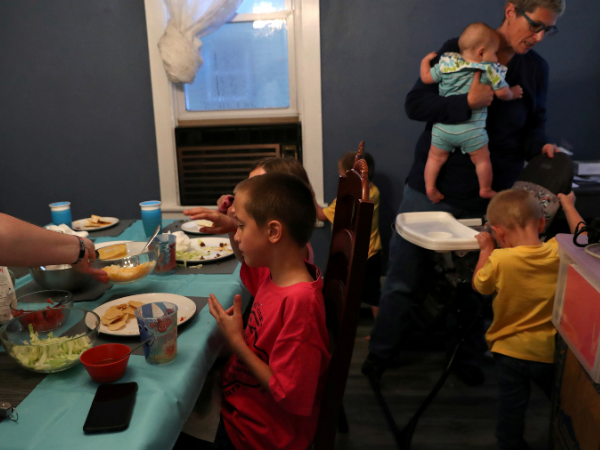U.S. business applications decline in February
Applications to start new U.S. businesses fell in February even as economic activity picked up amid an improving public health situation, government data showed on Wednesday.
The Commerce Department said business applications decreased 13.4% to a seasonally adjusted 423,095 last month. The data is derived from business applications for tax identifications.
There were a seasonally adjusted 48,749 applications from corporations, down 10.4% from January. Applications for businesses with planned wages totaled 51,071, a decrease of 12.9% from the prior month. Overall, business applications fell in all four regions last month and were across all industries.
The COVID-19 pandemic has decimated businesses in the services sector, especially restaurants and bars, leaving millions unemployed. Additional fiscal stimulus, declining new cases and a faster pace of vaccinations have allowed many businesses to reopen, boosting consumer spending and hiring.
Based on the February data, the Commerce Department’s Census Bureau, which compiles the data, projected about 31,153 new business startups with payroll tax liabilities would form within four quarters of application, down 13.2% compared to the estimates for January.
(Reporting By Lucia Mutikani; Editing by Andrea Ricci)
One in three Americans on unemployment benefits struggle to pay for food, housing

Kelly (L) and Rachel Newman attempt to have a family dinner with their six children, including Charlie, 9, center, at their home in Pitman, New Jersey, U.S., September 10, 2020. Picture taken September 10, 2020. REUTERS/Leah Millis/File Photo
Nearly a third of U.S. households receiving unemployment benefits are struggling to cover routine expenses such as food, housing and medical treatment, according a survey published by the Commerce Department’s Census Bureau on Tuesday.
The findings of the Census Bureau’s experimental Household Pulse Survey, conducted from Feb. 3-15, underscore the hardships wrought by the year-long COVID-19 pandemic. They also challenge the argument from some quarters that jobless benefits were too generous and could discourage people from seeking work.
About one in 10 households reported using unemployment checks to meet spending needs during the survey period. At least 18 million Americans are receiving unemployment benefits, with the federal government providing some of the funding.
“Approximately one out of three households, 31.2%, that used unemployment insurance in the last seven days to meet spending needs reported still having a very difficult time meeting usual household expenses,” said Abinash Mohanty, a statistician in the Census Bureau’s Social, Economic and Housing Statistics Division. “Those include, but are not limited to, food, rent or mortgage, car payments, medical expenses and student loans.”
That compared to about 12.3% or one in eight households that are not receiving unemployment benefits during the same period.
Regular state unemployment benefits averaged about $346 per week in January. The federal government is paying out a weekly subsidy of $300. It is also funding a program for the self-employed, gig workers and others who do not qualify for state benefits, as well as those who have exhausted their eligibility for such aid, which is limited to 26 weeks in most states.
About 16.0% of households that received jobless benefits and had a mortgage or were renting reported they were not confident they could pay next month’s rent or mortgage. In contrast, only 6.2% of households not on jobless benefits had such worries.
“In addition, about one in six households that used unemployment insurance reported that it was very likely that they would experience eviction or foreclosure in the next two months,” said Mohanty.
Many are struggling to put food on the table. About 75% of households with children that received jobless benefits reported said their children sometimes or often did not have enough food.
Even with access to food stamps, hunger remains a problem, with 24.7% of such households reporting “sometimes or often not having enough to eat.”
(Reporting By Lucia Mutikani; Editing by Sonya Hepinstall)

